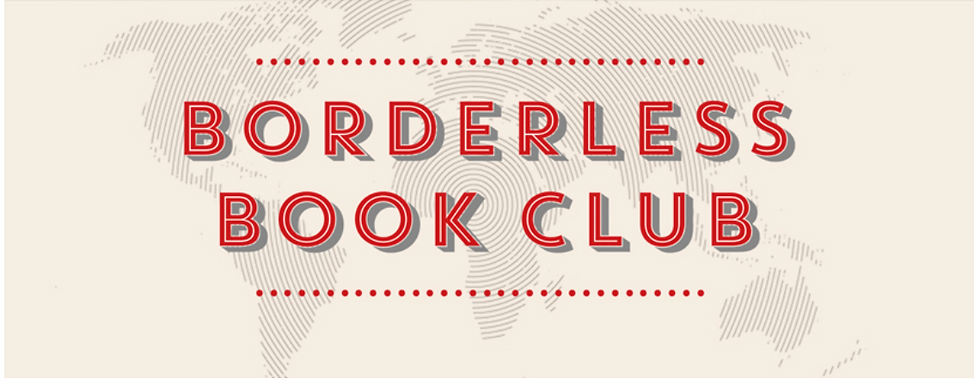Borderless Book Club – Elena Knows
- Johanna MCCALMONT

- Aug 23, 2021
- 4 min read
12 August 2021
Elena Knows by Claudia Piñero, translated from Spanish (Argentina) by Frances Riddle, (2021) Charco Press
"Rita died on a rainy afternoon."
This much Elena knows, but why and exactly how Rita died are a mystery Elena is determined to solve. Her daughter never went near the church when it was raining, afraid it would be struck by lightning. So she simply couldn't have committed suicide as the police investigation quickly concludes. Fighting her debilitating Parkinson's—Herself—Elena sets out across Buenos Aires to get help from a woman called Isabel.
I was immediately drawn into Elena's life and read this short novel in just a couple of sittings. Piñero's style is intense, from the minute details of Elena's deteriorating condition to the fraught mother-daughter relationship. Elena's desperate search for hope or reassurance, despite her physical and emotional pain, contrasted with the often suffocating atmosphere. The reflections on both the more recent past, since the onset of 'Herself', and memories of a brief encounter between Rita and Isabel more than twenty years previously kept me wondering what had really happened right to the end. But Elena Knows doesn't only raise questions about a supposedly mysterious death. The novel explores much deeper dilemmas: the role of women and their rights; how society sees and deals with debilitating conditions; and how our views are formed, informed and change over time. Dilemmas I was looking forward to digging into at the Borderless Book Club!
As usual, enthusiastic host Maddie warmly welcomed Charco Press publisher Carolina Orloff and American translator Frances Riddle. Based in Edinburgh, indie publisher Charco Press is passionate about bringing new voices in contemporary Latin American literature into English. However, unlike the other writers Charco publishes, this is not the first time Claudia Piñero's work has been released in English. Carolina was keen to introduce readers to another side to Piñero, beyond the crime fiction already translated into English—a side that questions realities and shows Piñero's interest in social, political, human and philosophical issues. Buenos Aires-based translator Frances Riddle touched on the choices raised in Elena Knows, choices that reveal different points of view as the novel progresses. Choices that make readers question their own perspective, added Maddie.
***Spoiler alert***
One major theme in Piñero's work that reappears in Elena Knows is abortion—the abortion Rita prevented Isabel from having twenty years previously. Frances explained that the fight for abortion in Argentina (legalised in December 2020) is one that Piñero has returned to again and again. Piñero writes female characters who don't conform to expectations, added Frances. The portrayal of Elena's Parkinson's was based on Piñero's personal experience of watching her mother live with the illness. Carolina noted the fine line between compassion and pity explored in the novel in relation to Elena's illness.
Frances shared some insights into the translation process. One main challenge was the length of the sentences and to what extent this style could be reflected effectively in the English text. She also felt it could be useful to italicise the dialogue to help readers, to give them in a hint in what are often long, confusing paragraphs. Working on the translation during lockdown meant that Frances hadn't been able to meet Piñero, but she had received valuable input from Charco editor Fionn.
It was then time to head into the small breakout rooms to hear what others thought and make some new friends all over the world. Maddie always does a great job of sharing a few links with interviews and articles in the invitation, along with questions to help guide the conversation in the breakout rooms.

Our room spanned several countries and two (three) continents! We compared notes on where we'd spotted a turning point in the story and started to understand what had really happened. We were touched by the details of Elena's illness and reflected on the nature of the mother-daughter relationship. Why had Rita stayed? Why hadn't she moved out? We were lucky enough to have a Latin American in our group who shared a little of her own experience of the culture. It was a discussion that was still going strong when we were zoomed back into the main room to hear from the other groups and ask Frances and Carolina a few more questions.
Elena Knows has stayed with me in a very visceral way. It might not have taken long to race through that single day of Elena's life and reach the 'neat' conclusion about the 'crime', but the suffocating atmosphere reflected in Elena's gradual paralysis still resonates. It somehow connected at a deeper level that slowly teases out much bigger questions about society in general. Perhaps this is what Carolina meant when she said she felt she had to bring Piñero back to English readers from a different angle?

Curious about the backstory to a book that has been translated into English? Fancy meeting fellow bookworms from across the world. Then why not join us? Borderless Book Club meets every other Thursday at 8 pm (UK time) on Zoom. No charge. And don’t worry if you haven’t read the book (I admit I haven’t always finished in time!). Just sign up for the Borderless Book Club mailing list here and you’ll receive the invitation every fortnight!
Johanna McCalmont is a bookworm and literary translator based in Brussels, Belgium. She translates from French, German, Dutch and Italian and also works as an interpreter.






Comments